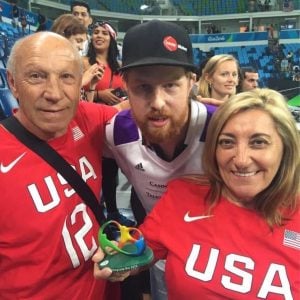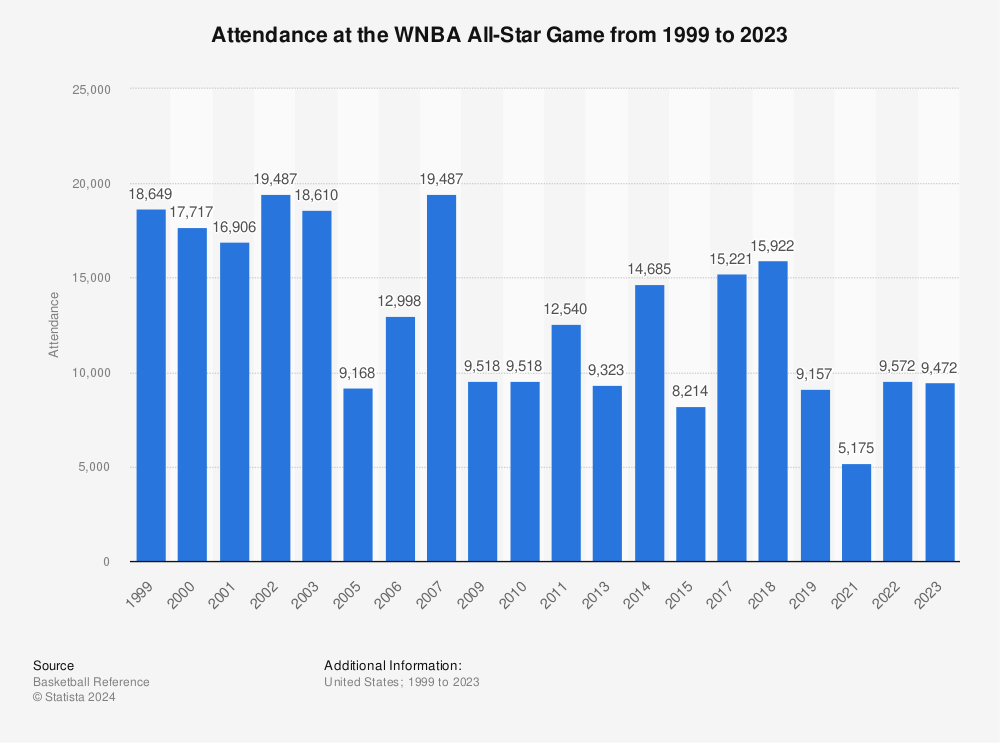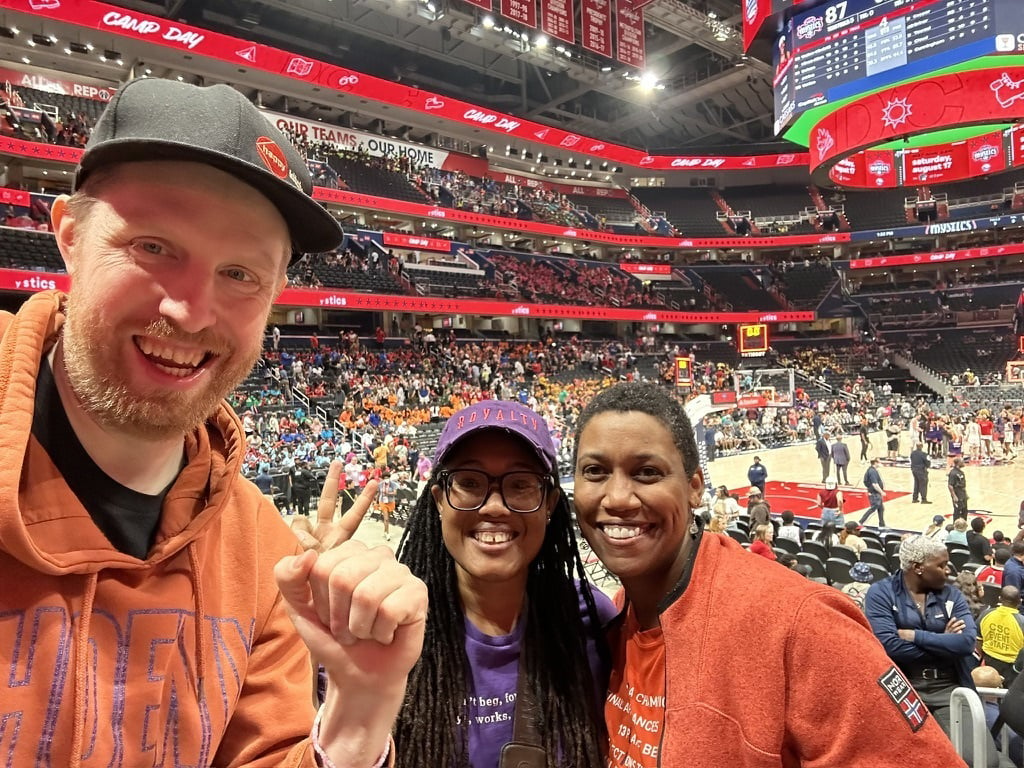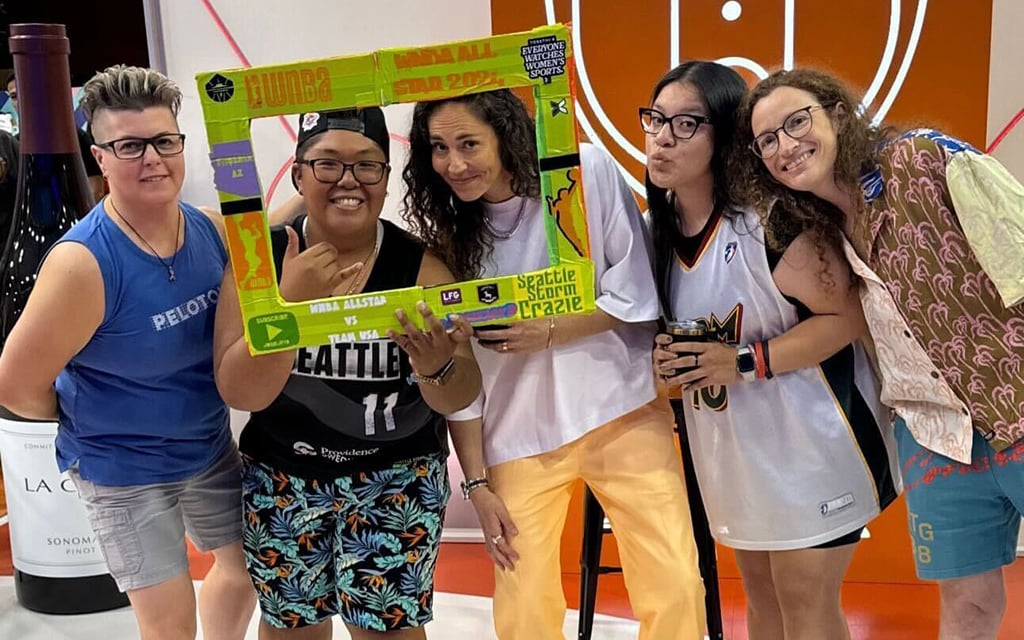PHOENIX – The basketball world converged on the Valley for this year’s historic WNBA All-Star Game, showcasing not only the sport’s elite talent but also its international reach. The weekend underscored how deeply interconnected the game remains between fans and players across the globe.
International interest, which involves fans and players from multiple countries, has significantly impacted the growth of the WNBA. From the league’s early years, international stars like Lauren Jackson, Michele Timms and Jennifer Azzi have attracted global attention. Over the years, many players have spent WNBA offseasons overseas, in countries like Turkey and Russia, to make more money and play at high levels.
For example, longtime Phoenix Mercury guard Diana Taurasi played overseas for 12 seasons in Russia and Turkey, where she won numerous titles worldwide. She retired from international play in 2017 (excluding the Olympics) but not before sitting out a WNBA season at the request of her Russian team, UMMC Ekaterinburg, sparking discussions about the WNBA’s salary cap.
Throughout her career with the Mercury, Taurasi played with international teammates such as Australian Penny Taylor (her spouse of seven years), Russian Maria Stepanova, and under Australian coach Sandy Brondello.
“The international players have always been an integral part of this league, especially here in Phoenix,” Taurasi said last Friday. “We talked about our Australian contingency with Penny (Taylor), (Michele Timms), and then you have it on the coaching side, too, with Sandy (Brondello) and bringing that international experience.
“So it’s a huge part of our league. The game grows internationally every single year and after 20 years, it’s in a really good place.”
Brittney Griner, Taurasi’s longtime Mercury teammate, also played for the UMMC Ekaterinburg from 2015 to 2022. Griner’s detention in Russia and subsequent return to the United States through a high-profile prisoner exchange highlighted the need for increased safety measures and salary cap changes in the WNBA.

Mario Taurasi, left, Anders Andersson, middle, and Liliana Taurasi celebrate at the 2016 Rio Olympics, highlighting the global reach of WNBA stars like Diana Taurasi and the international appeal of women’s basketball. (Photo courtesy of Anders Andersson)
Since the early 2020s, the WNBA has received more attention from fans around the globe due to the Black Lives Matter movement during the COVID-19 pandemic. Players from the Atlanta Dream contributed to the ousting of former team owner Kelly Loeffler who was running for the Georgia Senate seat, a subject explored in the “Power of the Dream” documentary on Amazon Prime.
There has been a spark of social justice movements by players, including activism by the Phoenix Mercury’s Natasha Cloud, who sat out the 2020 season to work on social justice issues in the wake of George Floyd’s death.
In the midst of the WNBA’s All-Star festivities, Connecticut Sun forward DeWanna Bonner took a moment to appreciate the league for supporting players who have committed time, money and energy to rally around issues that matter to them.
“If they’re in it, and they’re in the WNBA, they’re speaking up for it … It’s always good to have that support,” Bonner said.
Fans like Josie Dumlao, an Asian American Pacific Islander and diehard Seattle Storm supporter, have also felt empowered by the league’s stance on social justice issues. Dumlao has been a season ticket holder since 2014 and proudly supports causes like Black Lives Matter and reproductive rights.
“With social justice, we can see that the WNBA did its part by showing topics that matter to them: Black Lives Matter, trans rights, reproductive rights, and so on,” Dumlao said. “Being a Filipina American, watching the WNBA shows things like Black Lives Matter, stopping Asian hate, and the involvement of having people vote, which is empowering because we get to be a part of that minority that needs to be spoken. We have allies and role models who help our voices speak.”
Andrea Martinez, a passionate Storm fan from Mexico City, visited Phoenix for last Saturday’s WNBA All-Star Game. Martinez’s love for women’s basketball began during a family trip to Seattle in 2008, when she attended her first Storm game and saw Sue Bird play.
“What got me into women’s sports was a certain city and a player,” Martinez said. “When I was 8 years old, I used to love swimming. In a country like Mexico, sports is not an option to follow in the future, it gets treated as a hobby.
“My mom, with an intent to make the trip (more fun), decided to take me to a Seattle Storm game, I remember I enjoyed it a lot and was shocked because, at that age, I never knew women could (play basketball).”
Martinez’s passion for the game grew through social media, leading her to follow the careers of players like Bird and helping her develop a deep connection to the WNBA.
Anders Andersson, a Mercury fan from Sweden, also attended the WNBA All-Star game and has been drawn to women’s basketball since following the success of Swedish basketball club Arvika Basket in the late 1980s and early 1990s.
“I grew up in a city called Arvika, and Arvika Basket was the number one basketball team in Sweden at that time,” Andersson said. “They became Swedish champions six years in a row, 1989-1994. In 1991, they did reach the final four in Europe and came second. Jennifer Azzi played one and a half seasons in Arvika. I remember that she came to a school practice that I was in and played with us kids. That was big, so it started there. And I am still driving to Arvika from my hometown, Karlstad, with passion regardless of division.”

Find more statistics at Statista
The WNBA’s recent announcement about adding expansion teams, along with preseason games in Canada, highlights the league’s growing international presence. According to YouGov, the percentage of fans likely to follow the WNBA rose from 2.2% in June 2019 to 6.4% in April 2024, with 47% of the audience between 18 to 34 years old.
“I think a league like the WNBA has a place for many different players and personalities, which helps the league grow,” Andersson said. “I love to watch many types of players playing the game that we all love.”
As a Mexican, Martinez emphasized that being seen and heard is crucial for fans of women in sports to spread awareness.
“I think it matters because it makes the game break barriers that in the past (were)impossible to achieve,” Martinez said. “Also, it is important because it makes everyone feel involved and seen, all of us are fans and important too. As a Mexican, it’s always frustrating and devastating seeing a message of some type of women’s sports video originally in the US saying ‘not allowed in your country,’ so I do think (it) is important to make everyone from everywhere feel seen.”
Dumlao noted the significance of diverse representation in the league, citing players like Han Xu, a Chinese player who most recently played for the New York Liberty, and the Minnesota Lynx’s Alissa Pili as role models for Asian American Pacific Islanders.

Anders Andersson, a dedicated WNBA fan from Sweden, attends the Phoenix Mercury vs. Washington Mystics game on July 16 in Washington D.C., demonstrating the league’s growing international following. (Photo courtesy of Anders Andersson)
“I think internationality matters in the league, and keeping it diverse, because you get to see different cultures and backgrounds expressed beyond just basketball,” Dumlao said. “To see Asian American players like Han Xu and Polynesian players like Alissa Pili, makes pathways for us, Asian American Pacific Islanders, to be a part of the league. As a younger child, I didn’t have anyone to look up to in women’s sports until now. Alissa Pili from Minnesota Lynx and Vanessa de Jesus from Duke are the closest things.
“Vanessa (de Jesus), a Filipino American point guard, was the newest thing next to my all-time player, Sue Bird. To see that being expressed in the WNBA would be great news to Filipino Americans. It would also be nice to express a game night in the WNBA for Asian American Hawaiian Pacific Islanders to have recognition in the league as all other sports have one.”
Marine Johannès, a member of the French Women’s National Team, has also helped expand the game across France, where the Summer Olympics are taking place. Known for her flashy passes and 3-point shooting, Johannès represents the growing international influence in the WNBA.
“I think it helps WNBA grow outside the USA,” Andersson said. “And the league is developing and helping other nations to be better. That is important for the basketball in the big picture.”
As the women’s game continues to expand globally, especially with the Paris Olympics starting, there are high expectations. The league has revved up ways to connect more fans with players for the last few years, leading to its growth – and it’s not slowing down anytime soon.
“Look at this moment that we’re in right now in sports in the WNBA, these are uncharted waters for a lot of us,” Taurasi said. “It’s pretty amazing to be a part of it. And like coach (Cheryl Reeve who) says she’s been in this game longer than anyone. She’s coached and been around the greats. It’s always nice to see the game improving like it is right now. And if we could ever get this game overseas, that would be pretty cool, too.”

